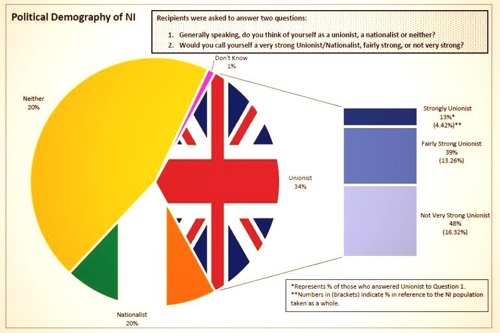I’m faintly concerned about the use of language as a weapon in society in contentious issues. As if the very words themselves depict the entirety of a position. In our local politics it was always used by Unionist politicians in descriptions of their idealogical enemies. They couldn’t just say “Sinn Fein”, it had to be … Continue reading “Weaponised Language”
I’m faintly concerned about the use of language as a weapon in society in contentious issues. As if the very words themselves depict the entirety of a position.
In our local politics it was always used by Unionist politicians in descriptions of their idealogical enemies. They couldn’t just say “Sinn Fein”, it had to be “Sinn Fein/IRA” as it was ideologically important to tie the political party to murder and mayhem. This sort of talking only serves to delay inevitable change. But that’s okay because the individuals involved gain nothing from the change and the delays just serve to reduce the amount of important work going on. Recent news that our local legislature has passed only 200 bills indicates that not enough is going on for our continued investment. It’s a little bit daft because we now have a government consisting of a coalition of two ideologically opposed parties. Is it any wonder nothing gets done on the hill?

It’s widely publicised that “Pro Choice” is the polar opposite of “Pro Life” but obviously “Pro Choice” is not “Anti Life” at all; quite the opposite. They just value the life of the mother potentially as much as the life of the unborn child. But it suits the political agenda of those opposed to abortion to paint “Pro Choice” activists as murderers. I can tell you categorically that I’m not “Pro Death”. I can also state categorically that I’m not in favour of abortion. I will say that if you ask me to choose between the life of a human adult and a small clump of cells, I will pick the human adult every day. If you ask me to potentially subject a new human being to a life of being unloved, a life of abject poverty and abuse, I will absolutely reject that notion. And if you try to convince me that a human female loses the rights to her own body because a human male wants a child, then I’m diametrically opposed to you.
My degree subject, Genetics, is a contentious issue in itself. During my final year, a group led by the university Christian Union attempted to have a debate on the moral legitimacy of genetics and invited many of my lecturers. They all turned up. What was meant to be a debate turned into a series of tracts being read from a book and punctuated with character attacks. Then the subject strayed to Human Genetics and the moral absolutism of religion, one example of such was “My son has a genetic disease, if it was up to you he wouldn’t exist”. To which the reply from the genetics panel was “Sure he would, but he wouldn’t have a genetic disease”. I don’t know if the bigger tragedy was that this had been pulled together by educated young people or that some of those young people later became teachers.
Similarly, I’m a secularist which means I support the separation of Church and State. I do not believe that the Church (any church) should be allowed into our schools. I believe that if a parent wishes to ensure their Church has new followers, then they should fund that themselves. I’m not “anti religion”, I’m very much “religion neutral” (and for these purposes I also include atheism and agnosticism). So every prayer in a state-funded school is an oppression on anyone who does not subscribe to that sect. But it’s important to note that while I may be fundamentally an atheist, I do not want to see the suppression of the Church (or any religion). I believe that religion is a personal choice and not an aspect of policy or politics. I’m not suggesting we should knock down the chapels at all, but we may have to stop starting every political session in Northern Ireland with “Prayers”.
As I write this, a Northern Ireland ministerial advisory group has stated that schools in Northern Ireland should be made legally accountable for promoting equality and good relations. That won’t, of course, make it any further.
I’m tired of saying “Someone needs to do something”. The only way to take our country out of the hands of bigots and pulpits is to vote them out of government.

